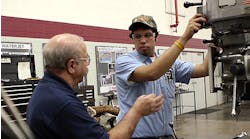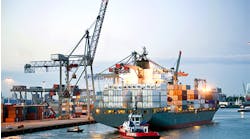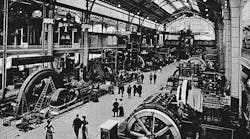Two years ago the Ford Motor Co. unveiled its all-aluminum F150 pickup at the North American International Auto Show, and the enthusiasm that ensued was a true affirmation of the value that Ford and its numerous suppliers have achieved over several decades of effort to advance automotive technologies into lighter and more fuel-efficient, and still functional forms. It’s no stretch to add that comparable efforts by other automakers and suppliers were likewise validated in that moment.
And if current trends hold that may be the last time that annual NAIAS actually focuses on automotive design. Now, the auto industry we’ve known is merely a platform for launching autonomous navigation systems, car-sharing syndicates, luxury vehicle subscription services, and similar “hot” ideas premised on some notion that cars need passengers but not drivers, or even owners.
The NAIAS this month is not emphasizing automobiles, nor is the concurrent Consumer Electronics Show much concerned with electronics. What matters at these events now is simply “technology”, new technology, better technology – and practically speaking it does not matter what these technologies do, nor how, nor really why: the great objective for technology now is to make people respond, to activate or engage or entertain them. Successful technologies are those that fulfill some need in consumers. If the technology flatters their sense of style or influence, or affluence, or if it instills a sense of skill or accomplishment, the demand will have been created and success will be declared.
The idea that technology is reshaping our understanding of ourselves has been around longer than you may suppose. One hundred years ago a remarkable but mostly forgotten autobiography was published, nearly paralleling this moment. In The Education of Henry Adams, the writer and historian narrated a lifelong tale in which the principles and values of one era were overwhelmed by the practices and impulses of another. Like many people today, he observed this as a shift from order to chaos.
"Chaos was the law of nature,” Adams wrote. “Order was the dream of man.” Today we tend to think of technology as the means for overcoming the aspects of nature we find inhospitable or inconvenient, or unprofitable, but Adams is persuasive in the view that technology is itself a force commanding respect and obedience. It is fascinating and thrilling — “Chaos often breeds life, when order breeds habit," he observed — and deceptive in the way it overtakes human reasoning.
He noted that the “technology” of his age (steam power, dynamos, and automobiles) was altering human knowledge, self-awareness, and ultimately faith. For him, the shift was too profound, incomprehensible, and he withdrew into the role of a chronicler. He watched and noted, but he could not progress with it. Of course, people managed eventually to incorporate things like electric power and automotive engineering into a wider understanding of the universe. We understand how such things work, and why, and we can use them to achieve other goals.
Still, Adams’ experience resonates as we watch the shift from technologies with practical applications to new concepts that are simply faster, or more convenient, or entertaining. The emerging standard is that technology is significant because of products, not processes. The emphasis is shifting toward what we take from the technology itself, not what the world gains from its development. And that new emphasis is increasingly personal, if not self-centered. The universe we understand will become smaller and narrower.
Like Adams, we continue to prefer order to chaos, but too many are contented to accept that it’s an order we dictate and manage. And so the technologies that gain attention now are those that people believe they can control and direct, like driverless cars.
In this issue we emphasize an alternative: metalcasting ideas and technologies covered in this annual presentation are practical and purposeful, expanding our understanding of the science and technology we seek to harness and reinforcing the order that directs human progress. Technology is a force, but one that results from human ingenuity and cooperation. We can control it if we work to understand its power – and our purpose.









